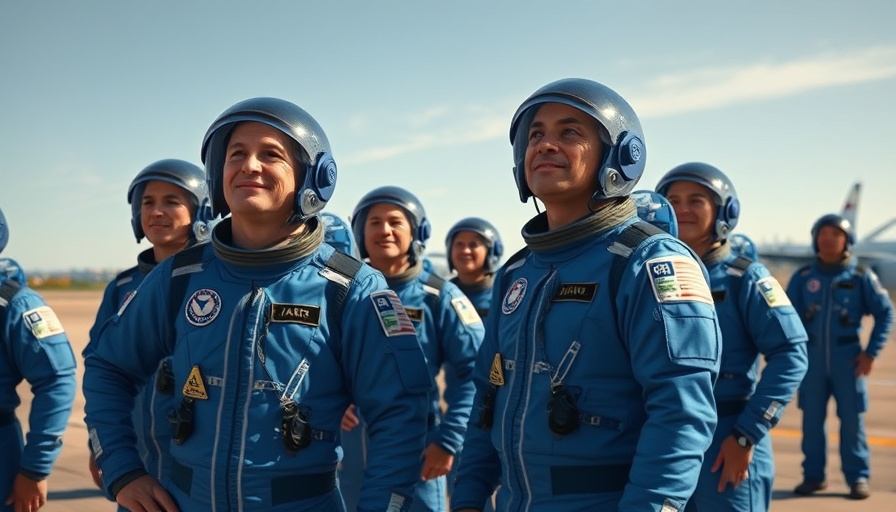
An Unexpected Conflict in Space
In a surprising social media spat, Elon Musk, the world's wealthiest person, clashed with Danish astronaut Andreas Mogensen over controversial claims regarding the treatment of astronauts aboard the International Space Station (ISS). This heated exchange raises important questions about the responsibilities of private aerospace ventures and the political intricacies surrounding space exploration.
What Sparked the Controversy?
The incident erupted when Musk accused former President Joe Biden of deliberately stranding NASA astronauts Butch Wilmore and Sunita Williams on the ISS for political advantage. The tension escalated as Mogensen, a European Space Agency astronaut with firsthand experience aboard a SpaceX mission, took to his platform on X (formerly Twitter) to vehemently dispute Musk’s assertions. He referred to Musk's statement as "What a lie," criticizing his approach to factual discourse.
Key Insights from the SpaceX Missions
Mogensen highlighted critical details about the astronauts' situation: both Wilmore and Williams originally embarked on a testing mission on Boeing's Starliner. This mission, initially designed to last eight days, encountered issues that ultimately led to NASA's decision to bring them back on a SpaceX Crew Dragon capsule instead. NASA’s choice to delay their return—from February to March—fueled Musk’s claims but was based on technical preparations and safety protocols rather than political machinations.
A Community Divided: Public Reactions and Perceptions
The exchange between Musk and Mogensen not only sparked debate on the treatment of astronauts but also reflected broader concerns about the influential role of individuals like Musk in space exploration narratives. Social media platforms amplify these tensions, sometimes leading to misinformation mixed with opinion, impacting public perception about significant scientific endeavors. Many followers of both Musk and Mogensen expressed polarized views during the altercation, demonstrating how the discourse surrounding space travel is often entangled in political sentiments.
The Bigger Picture: What Does This Mean for Space Exploration?
As space missions become increasingly public and politicized, the ramifications of high-profile arguments like this one extend beyond social media. Trust in governmental and private aerospace organizations could erode if claims and counterclaims about mission decisions dominate the conversation. Furthermore, with space's future leaning heavily on partnerships between government bodies like NASA and private companies like SpaceX, having clear, honest communication becomes essential.
Concluding Thoughts: The Call for Transparency
As the dialogue surrounding space exploration evolves, it is crucial for industry leaders, astronauts, and political figures to maintain a level of transparency that fosters public trust and understanding. The interaction between Musk and Mogensen serves as a reminder that while debates can be passionate, they should ultimately prioritize factual integrity over sensational claims. For the audience following these developments, it remains important to dissect such interactions critically while celebrating the advances made in space technology, especially given NASA's and SpaceX’s significant roles in shaping the future of exploration beyond our planet.
 Add Row
Add Row  Add
Add 




Write A Comment